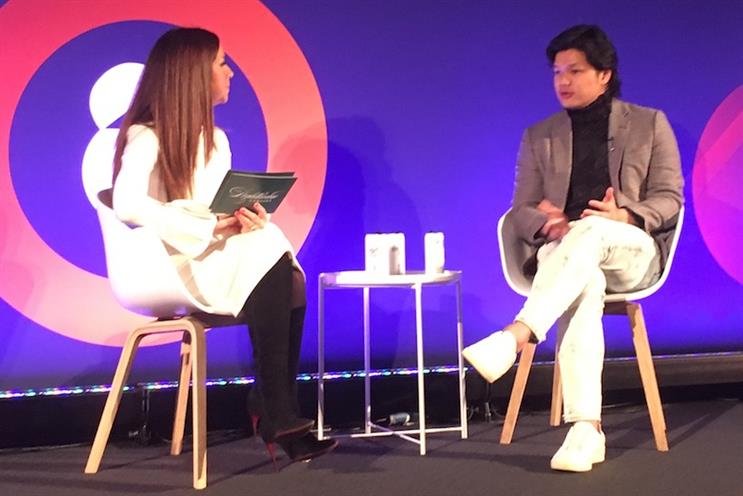Entrepreneur Terence Kwok is building a $1 billion hospitality company on the back of a product that solves the traveller's problem of getting mobile connectivity while abroad.
The founder of Hong Kong-based Tink Labs came up with the idea for Handy, a complimentary smartphone that is now installed in 700,000 hotel rooms worldwide, four years ago.
He has grown it into the media and advertising space, partly by acquiring the Italian publisher of luxury magazine Luxos in late 2016, and has just raised further investment that values Tink at $1 billion.
It is getting into more cutting-edge technology too. In Japan it has added virtual reality headsets to its in-room offering and Kwok claimed to be working with some of the biggest providers of VR content.
It is also experimenting with a virtual human hotel concierge that it hopes could be played by a famous actor, having brought in a Hollywood company as an investor in an early funding round.
Kwok, speaking at Advertising Week Europe last week, said he saw a big opportunity to grow Handy into a travel and hospitality brand serving transient, but high-spending, consumers.
Luxury brands get around 65% of their revenues from people who are staying in hotels and around 25% of retail spend in London is from travellers, he told his interviewer, The Lighthouse Company founder Kathleen Saxton.
Handy has grown by selling its product into hotels, which include The Ritz and Holiday Inn in London, and has enjoyed particular success in Hong Kong, Singapore and Japan.
The smartphone offers free calls and integrates with hotel services, modernising the function of traditional hotel phones and guides. One chain, Westin, has got rid of its in-room guest guides, in-room installed phones and room controls, according to Kwok.
He is looking at expanding Handy into an app that travellers could install on their personal phone, although he pointed out that the physical handset had an advantage over hotel apps when it came to reaching "transient" travellers.
"Travel is such an infrequent activity that the percentage of people with hotel apps on their devices is very low," he said. "Their customer acquisition costs are pretty high."
The cost of each Handy is lower than people might think, added Kwok, because one of Tink’s investors is Terry Gou, the boss of giant Chinese tech manufacturer Foxconn.
The company is also developing its media sales offering on the back of the relationships and content that came with the acquisition of Luxos.
"My advertising team is working with airlines," Kwok said. "We have an app where the user can check flight status. That helps you infer certain things about them. For example if they are flying Cathay Pacific from London to Asia, British Airways might be interested in targeting those people."











